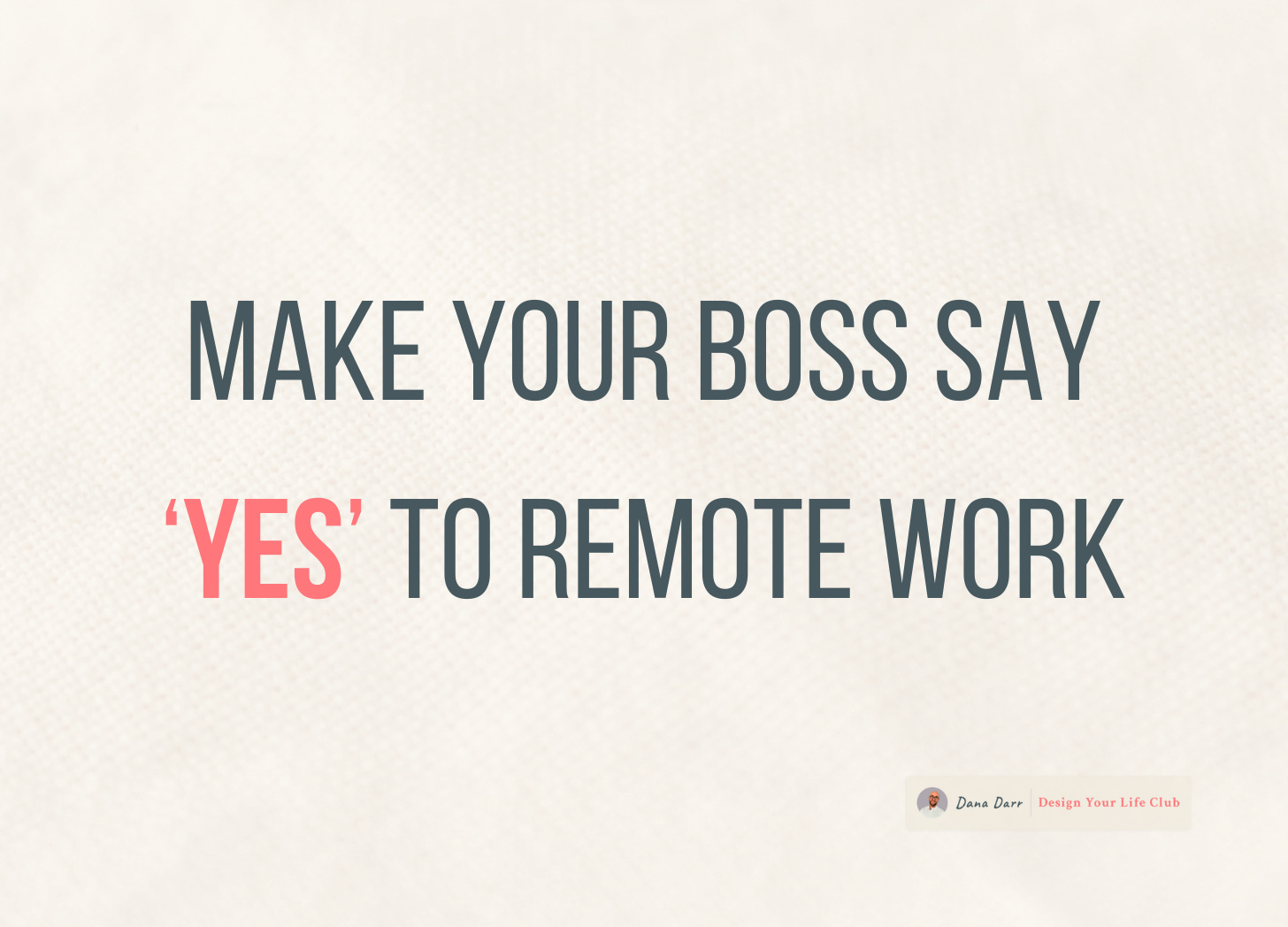How to Convince Your Boss to Move You to Remote Work
Changing someone’s mind requires you to think and communicate as if you were the person you’re attempting to persuade.
Companies make stupid decisions all of the time—like paying for expensive office leases while struggling to find funding. In this edition, I'll give you the ammunition to tell the decision-makers why they’re stupid (just kidding) and why they should make you fully remote because that’s freedom, baby.
If I told you that you could save more than $11,000 a year, would you take it? Businesses are clinging to the idea of working in the office or retracting their work-from-home mandate. My question is, is this really the best decision for employees?
TL;DR: The Important Stuff, Fast 💨
Decision-makers don’t care about your preference—they care about business impact. Their top concerns:
Productivity & Innovation: Will remote slow us down?
Hidden Costs: Compliance, security, and infrastructure aren’t free.
Culture & Retention: Will this hurt team connection and turnover?
How to Flip Your Boss on Remote Work: Hit them where it counts—profit, performance, and retention:
Profitability: Remote work saves $11,315 per employee & boosts profitability by 21%.
Productivity: Remote employees are 35-40% more productive with 40% fewer errors.
Retention: Flexibility reduces turnover by 12% & absenteeism by 41% (saving $$ on hiring).
The Takeaway: Want a “yes” on remote work? Make it about the bottom line. Higher profits, fewer HR headaches, and stronger output. When the numbers are this good, saying “no” doesn’t make sense.
Thinking Like a Decision-Maker
Behind all those decisions and large paychecks are people. It’s important to understand what they’re thinking and why, so let’s exercise our empathy muscles and put on our decision-maker shoes for a minute.
What a Business Cares About:
The million dollar question: Can people get the work done at the same level—or better—than they do in office?
Are employees staying engaged and motivated? How do I track their performance without micromanaging?
Does this save or cost us money? On paper, we could cut costs. But is that just shifting the expenses (home office stipends, new software, IT security)?
Tax implications & compliance: If people move across state or international lines, I’m now dealing with new tax laws, labor regulations, and potential liabilities.
Security risks: How do we ensure sensitive company data stays protected?
Does this kill company culture? It’s easy for remote teams to become isolated.
Will this help us attract and retain top talent? Remote work expands the hiring pool, but does it also increase turnover if employees feel disconnected or have too many options elsewhere?
Did you realize that there were so many different micro-decisions that a company goes through when deciding to make their workforce remote? Personally, I thought it just came down to money and getting the work done—until I dug deeper.
Perks for a Remote Workforce as a Business
Companies can save an average of $11,315 annually for each employee who works remotely part-time, leading to a 21% boost in profitability. Now that you understand how they think and have plunged into their heads like a scene in a sci-fi movie let’s talk about the ammunition we can use to convince your company to allow you to work remotely.
Top reasons for businesses to move to remote:
Profitability: With fewer employees on-site, you can save big on expenses like office space, utilities, and supplies, leading to substantial cost reductions.
Productivity: Remote work is an average of 35-40% more productive than in-office work and increases output by 4.4% or more.
Performance: With stronger autonomy, workers produce results with 40% fewer defects.
Engagement: Raised productivity and performance for employees mean they’re likely to show up for work, with 41% fewer missed workdays.
Retention: 54% of workers would switch jobs to get more flexible work arrangements. Companies that offer remote work see 12% fewer employees leaving their jobs. Would you leave for more flexibility? I sure would.
Go Remote by Thinking Like a Business
The benefits of working remotely outweigh the negatives for employees and businesses. Therefore, it’s time to make the change!
Everything is up for negotiation. Getting inside of the heads of who you’re up against is the way to win any battle.
If you're stuck at a workplace that isn't giving you what you want, you're in the right place—I love creating escape plan strategies. That’s exactly what this community is for, so subscribe for more free knowledge that I can transmit into your brains. 🧠
Things That Hit Different
🔗 A Post That Hit Me Hard
Ever feel stuck on autopilot? Find your flow state. Sikieng Sok’s approach to breaking free from the predefined path might just be what you need.
🛠 A Tool That’s Actually Helping Me
Juggling a career change, side hustle, or just trying to keep your sh*t together? Writing down my top priorities has saved me from complete chaos (no, really). This planner hasn’t let me down yet.
🎥 ICYMI: My Latest Video
*Some links are affiliate links, so I earn a small commission at no extra cost to you.*





